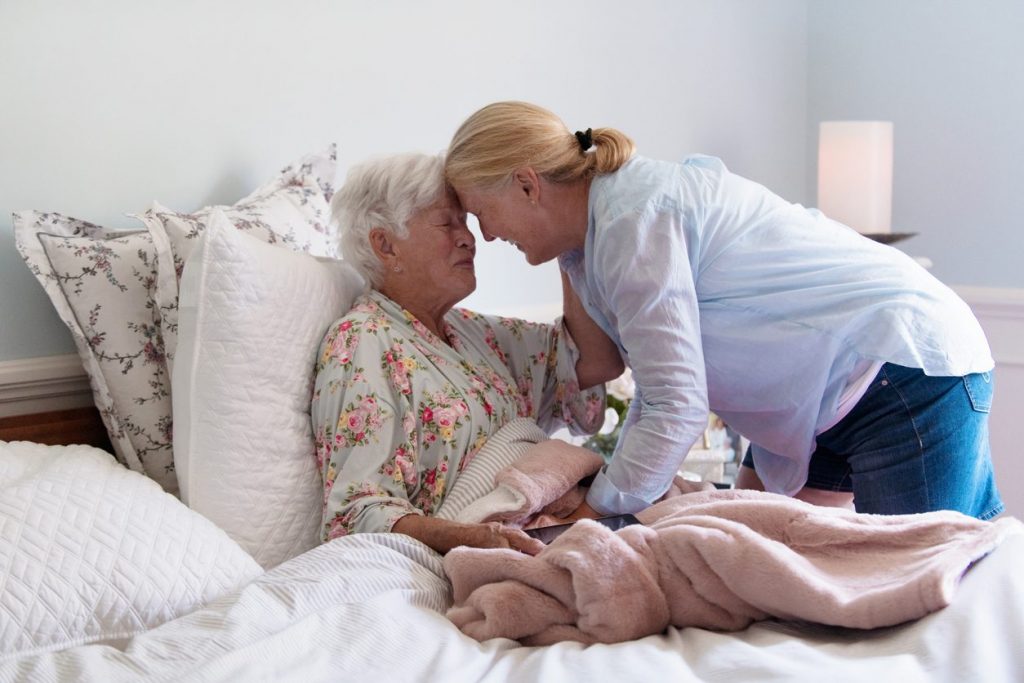
Cicely Saunders, the founder of the first hospice facility, St. Christopher’s Hospice in London, said to her patients, “You matter because you are you, and you matter to the end of your life. We will do all we can not only to help you die peacefully, but also to live until you die.”
- Is your loved one a candidate for hospice? Just because the hospital recommended hospice for your loved one does not mean that it is the only option. Often, hospice is suggested for elderly people who still may have hope of recovery but are referred due to age or disability. True candidates of hospice include those with a terminal medical condition and those with an expected prognosis of six months or less.
- The original vision of hospice was to provide caring service and respect for life, not to hasten death. Hospice was never meant to be assisted suicide, but rather to provide patients with respect and dignity through the most compassionate care in their final days. Some hospice facilities have been found to use sedation, dehydration, and starvation to hasten death. To help make your decision on what hospice facility to use, you can check accreditation through the Accreditation Commission for Health Care, the Community Health Accreditation Partner (CHAP) program, or the Joint Commission on Accreditation of Healthcare Organizations. You can also view certification at Hospice Compare on Medicare.gov.
- Here are some things you can consider when choosing a facility. Patients who are in pain need safely administered palliative care, not death. The best hospice facilities hold ethical principles that guide the appropriate use of sedatives and opioids. It is important to find a facility that has not lost the original life-affirming principles of hospice. Such practices have been proven to increase overall patient survival rates. You can ask questions to make sure the hospice facility you are considering views the lives of even the most vulnerable among us as valuable. One of the most important things you can ask for is a detailed description of the services that will be provided and how often each of them will be provided.
- Here is a list of the rights of you and your loved one, as well as questions you can ask a hospice facility before admission.
- If possible, you can make a plan with the family member in your care ahead of time. Hopefully you are aware or can learn what your loved one wants and how to best serve her or his needs. The hospice team will work holistically with you and your loved one to make a plan to maximize the patient’s medical, spiritual, and emotional well-being.
- Hospice care can be provided in your loved one’s home, your home, or the home of another caretaker. The American Hospice Foundation tells the story of a man named Charles who was diagnosed with terminal prostate and bone cancer, and at-home hospice care enabled him to peacefully pass away in the comfort of home surrounded by his wife and daughters. Some families hire music therapists to come to their home through the Center for Music Therapy in End of Life Care.
- Other options for the administration of hospice include a hospice facility, assisted living facility, nursing home, or hospital.
- Hospice workers can help you understand your role once your loved one is in hospice. Hospice workers offer 24-hour care and cover services such as assisting the patient, doctor’s appointments, bathing help, informing family how to best care for the patient, managing pain, and staying with your loved one when you need to leave the house.
Whether you are saying goodbye or getting temporary help, you deserve help, and hospice staff are there for you, too.
By Elizabeth Troutman

